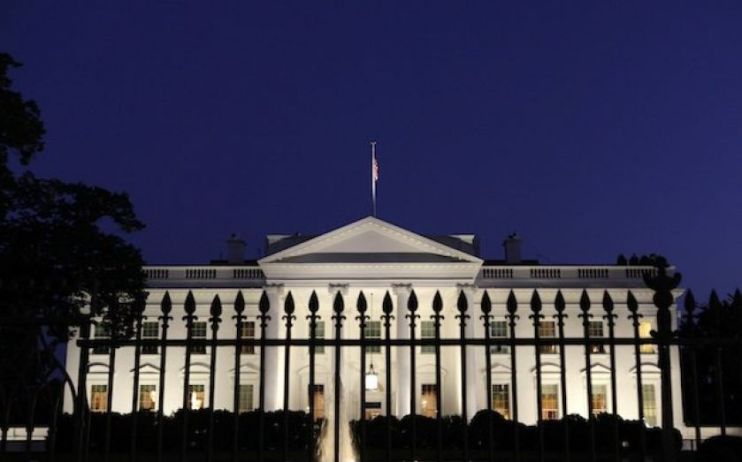Biden rules out military action in Ukraine despite deepening Russia tensions

US president Joe Biden ruled out putting American boots on the ground to defend Ukraine earlier this week, despite the looming threat of a Russian invasion.
The Kremlin positioned 120,000 troops near Ukraine’s eastern border last month, leading to increased speculation over recent days that military intervention in the war-torn country could be imminent.
Biden held extensive talks with Russian premier Vladimir Putin on Tuesday – in an attempt to ease deepening tensions between the two historic Cold War rivals.
Speaking to reporters in Washington following the discussions, Biden stopped short of threatening direct US military intervention if Russian troops step across the Ukranian border.
The President said: “It would depend upon what the rest of the NATO countries would do as well, but the idea that the US is going to unilaterally use force to confront Russia invading Ukraine is not on the cards right now.”
Instead of military conflict, Biden has warned Russia will face “severe consequences” including “economic consequences like no one has ever seen”.
He also said the US would have to reinforce troops in NATO countries.
…the idea the US is going to unilaterally use force to confront Russia invading Ukraine is not on the cards right now…
US President Joe Biden
During the talks, Vladimir Putin pushed for assurances from Washington that NATO will not add Ukraine as a member or look to expand eastwards.
The demand follows military exercises between Ukraine and NATO in September and warning shots fired near HMS Defender in the Black Sea by Russia-backed forces.
Ukraine has faced persistent conflict in recent years, after decades of simmering tensions in the former Soviet bloc since the break up of the USSR.
The most recent hostilities followed outbreaks of violent protests in Kyiv and the overthrow of its government in 2014, accompanied by Russia illegally annexing Crimea through force.
It still faces continued civil conflict in the Donbas region between Ukrainian forces and Russia-backed separatists.
US deterrents limited by spiralling energy crisis
The ability of the US to sanction Russia remains unclear – as any attempt to kick the country out of the SWIFT payments system for overseas transfers could be mitigated by Russian contingency methods.
This includes its domestic payments system – SPFS – which it could probably use to conduct transactions with China, while it has also developed a national card payment option in case its access to Visa and Mastercard is suspended.
Payment disruptions would also alienate key US allies such as Germany and the wider EU bloc, which are highly dependent on Russian energy supplies.
Russia is responsible for over a third of Europe’s natural gas, a particularly crucial factor in an embroiling energy crisis which has seen soaring wholesale costs increase five-fold since the start of the year, amid supply shortages and warnings of blackouts this winter.
Henri Patricot, equity research, oil and gas sector at UBS told City A.M. that Europe was suffering from a “lack of gas storage coming out of winter” and a shortage of “diversified” long-term contracts.
He also pointed to reduced back up power capacity due to closed nuclear plants in Germany, and maintenance issues in France.
The crisis has seen 24 UK energy firms cease trading in the past three months alone.
German lawmakers have pushed Biden to not intervene directly in Ukraine or the 759-mile Nord Stream 2 pipeline, which will boost Moscow gas supplies to Germany by 50 per cent.
The US agreed in July not to step in, provided Russia did not use gas as a weapon.
However, the Nord Stream 2 pipeline will reduce Ukraine’s influence in Europe, reducing lucrative transit fees for supplying gas to the continent.
Putin has also faced continued accusations he is putting pressure on Germany and the EU by cutting off supplies so that the new $11bn pipeline certified.
The International Energy Agency has also called on Russia to increase supplies to the continent.
The Russian president recently dismissed these claims as “politically-motivated blather” .
UK Prime Minister Boris Johnson criticised the pipeline at the Lord Mayor’s banquet month, calling for European countries to maintain their commitment to renewables and to back Ukraine.
The country’s role in the developing tensions could become clearer in coming days with the White House pushing for talks between Russia and a wider assortment of the US’ NATO allies.
Foreign secretary Liz Truss held talks on Wednesday with Ukraine’s foreign secretary Dymtro Kuleba, with the intention of strengthening links between both countries.